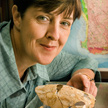Related Questions
- could all the scientists tell me how what they are doing could help the world ???
- What are you studying at the moment?
- When you go to workis it all theory or are you constantly doing pracs
- Why do you work in France, is it for the synchrotron or because France offers different things to aid your research to









Oh dear. There are so many. 😉 I don’t think this is what you meant, but probably the biggest challenge I have faced is a lack of funding. I was lucky enough to work at NCI, which is a USA federal government institute, and the money there was… not infinite, but there was enough to do basically whatever experiment I wanted to do without having to think about it. When I moved back to Australia, the adjustment was really difficult – I had to start prioritising, and applying for funding before doing experiments. It was a big challenge, and it is ongoing. Science funding in Australia is not great, and you have to fight for everything you get.
But because that’s not what I think you meant, I will give you an experimental example of a challenge. I had an experiment where I had to prove that a bunch of specific genes were expressed (turned on) at a higher level in cancers than in normal tissue. I do that a lot (using two techniques, PCR and Northern blot), and I was going along happily, until I got to a type of gene that I hadn’t worked on before. These were microRNAs – they’ve only been discovered within the last twenty years, and characterised within the last ten. At the time, I had never done any work with them. The challenge was that they are really really short – that’s why they are called microRNAs. They are too short to do PCR on, and so I tried Northern blots, but that didn’t work either. I eventually worked out that this was because: 1) the way I purified the RNA was DESTROYING the microRNAs before I ever got to analyse them, so I had to change my purification technique, and 2) the Northern blot technique didn’t work for such short pieces of RNA because the chemicals were too harsh, so I had to revamp, through a lot of trial and error, my Northern blot technique. Eventually (about three months later), I got a really nice result, and it made it into a paper which I published about five years ago. So it was worth it. 🙂
0